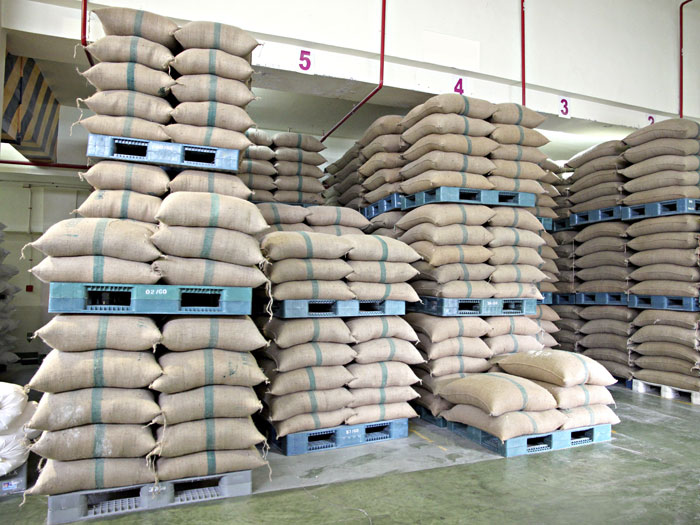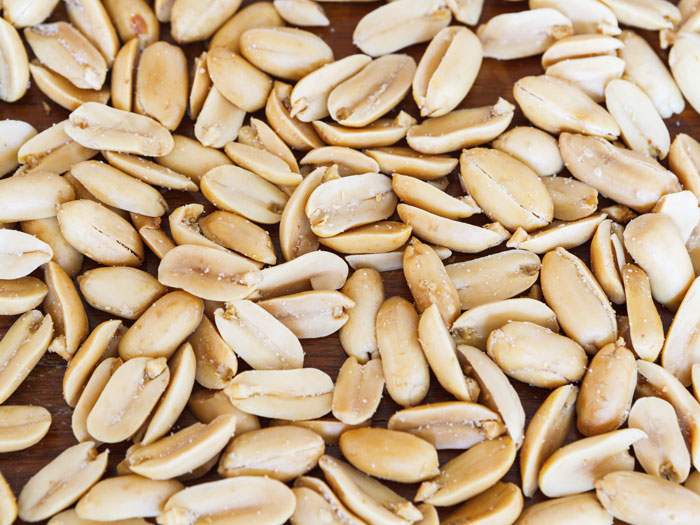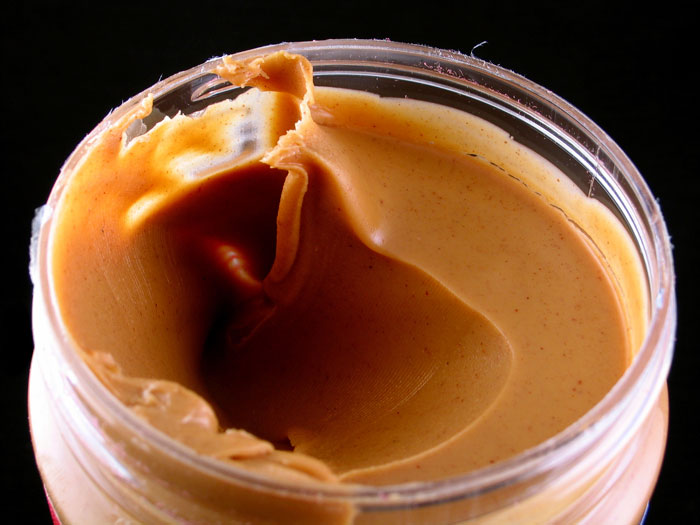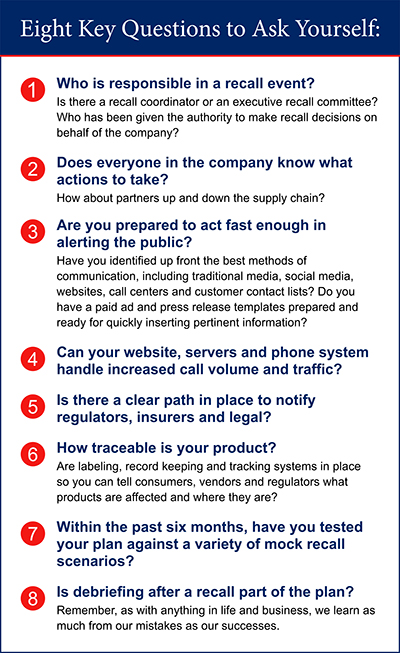Sponsored: Liberty International Underwriters
A Wake up Call for Any Company That Touches Food

It’s not easy to be in the food industry these days.
First, there is tougher regulation. On August 30, 2015, the Food Safety Modernization Act (FSMA) required companies to file planning paperwork for Preventive Controls for Human Food. The final FSMA rules take effect on August 30, 2016.
Next, increases in food recalls, some deadly, are on the rise. In early September, 9,000 cases of frozen corn were pulled from shelves after a listeria scare. A few days later, a salmonella outbreak in cucumbers imported from Mexico resulted in one death, while sickening hundreds of consumers nationwide.
Courts are getting tougher, too, as owners/executives in particularly egregious cases involving consumer deaths have been prosecuted criminally, with one receiving a recommendation for a life sentence.
Finally, advances in science – including whole-genome sequencing technology, which maps DNA of microbes to more easily pinpoint precisely where contamination occurs – can expose every player in the supply chain to potential losses and lawsuits.
“Few companies have the balance sheet or brand loyalty to survive a serious recall. Outbreaks, new regulations, prosecutions and science have made purchasing product recall and contamination insurance literally an act of survival for companies of all ages and sizes,” said Jane McCarthy, Senior Vice President of Global Crisis Management at Liberty International Underwriters (LIU), who has over 30 years of industry experience.
Working with growers, processors, manufacturers, importers, shippers, packagers, distributors, wholesalers or retailers, LIU’s policy provides indemnity to pay for losses a company might incur from a recall, including logistic expenses, lost income and access to crisis management and public relations consultants.
Legislation tightens on food-related companies
 Passed in 2011, the FSMA gives the Food and Drug Administration a far more proactive weapon in the war on tainted food, as the focus shifts to prevention combined with the FDA’s newfound authority to close businesses that aren’t complying with FSMA rules and regulations.
Passed in 2011, the FSMA gives the Food and Drug Administration a far more proactive weapon in the war on tainted food, as the focus shifts to prevention combined with the FDA’s newfound authority to close businesses that aren’t complying with FSMA rules and regulations.
In addition to the August 30, 2015 deadline for filing paperwork for preventive controls, as part of the law, all companies need to be registered if they do anything with food in the United States, or a company is a foreign entity bringing food into the U.S.
“It’s the law and every regulation and benchmark has to be met,” McCarthy said. “The FDA will shut someone down if they don’t think a company is handling a food product properly. With these new rules and regulations, the whole industry has to change.”
With LIU’s product contamination policy, companies have 24/7 access to pre-loss consultancy through red24, one of the world’s leading security consultants and global crisis management consultancies. For example, they’ll work with clients to best prepare them to meet the FDA’s 48-hour response deadline should a food contamination or product recall incident occur.
Costly outbreaks on the rise
 According to a Wall Street Journal article, food recalls from 2012 to 2014 increased more than five times compared to the total number of recalls from the prior eight years combined. The Journal also reported that foodborne illness is often never formally reported, so about 48 million Americans, or one in six, get sick each year from food. The CDC estimates 128,000 hospitalizations and 3,000 deaths from tainted food.
According to a Wall Street Journal article, food recalls from 2012 to 2014 increased more than five times compared to the total number of recalls from the prior eight years combined. The Journal also reported that foodborne illness is often never formally reported, so about 48 million Americans, or one in six, get sick each year from food. The CDC estimates 128,000 hospitalizations and 3,000 deaths from tainted food.
Food contaminations happen in two main categories: allergens (peanuts, etc.) and pathogens (bacteria). There were four listeria outbreaks in 2014 alone, compared with one in each year from 2011 to 2013. Listeria is a particularly tricky and virulent pathogen that continues to survive and blossom, even in refrigerated environments. Listeria does not impact the appearance, taste or smell of food it invades, so a company in the food industry can only confirm contamination through testing or, unfortunately, once a customer becomes ill.
“Listeria is one of the worst nightmares. Not only is it deadly, but once it gets into a plant, it’s very difficult to eradicate,” said industry veteran Meg Sutton, LIU’s Senior Claim Officer. “It sneaks into drains and crevices that you thought were clean. Attempts to clean those drains and crevices, if done improperly, can result in aerosolizing the listeria and spreading it throughout the facility. In some cases, companies are forced to shut down the plant for extended periods of time, resulting in significant business interruption and loss of revenue.”
Courts get tough on deadly cases
 With the increase and severity of food contamination recalls rising, the courts are getting tougher too. The food industry was rocked last month by a recommended life sentence for the ex-CEO of a peanut manufacturing company following a multiple-felony conviction for knowingly selling tainted peanut butter that ended up killing nine people.
With the increase and severity of food contamination recalls rising, the courts are getting tougher too. The food industry was rocked last month by a recommended life sentence for the ex-CEO of a peanut manufacturing company following a multiple-felony conviction for knowingly selling tainted peanut butter that ended up killing nine people.
“The judge ended up sentencing him to 28 years in federal prison, still the harshest penalty ever in a case of food contamination. While our policy won’t cover your defense if you’ve committed a crime, the penalty is another wake up call for the food industry that executives at the highest levels will be held accountable,” McCarthy said.
Science boosts detection, transparency
 Advances in DNA mapping are on the rise. “Before this technology, people would say, ‘It wasn’t us! Prove it!’ and that was pretty much impossible,” McCarthy said. “Those days are gone now.”
Advances in DNA mapping are on the rise. “Before this technology, people would say, ‘It wasn’t us! Prove it!’ and that was pretty much impossible,” McCarthy said. “Those days are gone now.”
By using today’s scientific methods to trace back to the source (grocery store, restaurant, wholesaler, etc.), experts can determine the production facility or farm that originated the food or food additive. They can swab the facility for DNA matches and pinpoint the contamination.
Considering those four prime drivers, it’s not surprising that interest in food product recall and contamination coverage from companies of all sizes is gaining momentum.
“We don’t want them to just buy our insurance,” McCarthy said. “We want them to be better for it with us as their partner by making sure they have the right coverage in place and improving their business from a health, safety and compliance standpoint.”
Liberty International Underwriters is the marketing name for the broker-distributed specialty lines business operations of Liberty Mutual Insurance. Certain coverage may be provided by a surplus lines insurer. Surplus lines insurers do not generally participate in state guaranty funds and insureds are therefore not protected by such funds. This literature is a summary only and does not include all terms, conditions, or exclusions of the coverage described. Please refer to the actual policy issued for complete details of coverage and exclusions.
![]()
![]()
This article was produced by the R&I Brand Studio, a unit of the advertising department of Risk & Insurance, in collaboration with Liberty International Underwriters. The editorial staff of Risk & Insurance had no role in its preparation.










